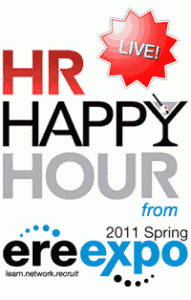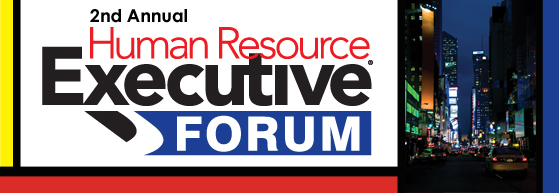HRevolution Sponsor Spotlight - PeopleMatter
Note - The third HRevolution Event for Human Resources professionals will take place April 29, 30 in Atlanta, Georgia. This post continues a series where we recognize and thank the generous sponsors that make the HRevolution event possible.
PeopleMatter provides talent management software for the service industry. PeopleMatter's software tools help their customers in the service industries like hospitality, convenience stores, restaurants, and grocery stores to manage the processes for hiring, scheduling and engaging their talent - all from a single, integrated platform.
I first met Nate DaPore, CEO of PeopleMatter at the HR Technology Conference last fall. Nate, along with his colleague Charles Wyke-Smith were kind enough to take some time to talk with me about PeopleMatter's Talent Management solutions, and to review some of their ideas and vision for the HR technology space, and more specifically, where they felt PeopleMatter could continue to innovate to deliver leading-edge talent management solutions for their customers.
PeopleMatter focuses squarely on developing solutions to meet the need of the service organizations; the type of customers that have significant talent management challenges. Traditionally high turnover, seasonal swings in talent and staffing requirements, the need to quickly and efficiently onboard high volumes of new staff, while simultaneously meeting myriad regulatory and legislative requirements for filing and reporting. Anyone that has tried to work in HR in these kinds of environments will attest to these conundrums.
Think about the importance of talent management to service providers like restaurants or hotels - their employees are face-to-face every single day interacting with customers, customers that often have lots of choices about where to spend their time and money. For service providers, having the 'right' employee, properly trained, and engaged enough to deliver superior customer service, can make or break the customer experience. And in the age of social media, we all know what one bad customer service experience can do to a brand. One tweet, one YouTube video, one ranty blog post and boom - years of hard work and accumulated capital and goodwill gone. PeopleMatter helps their customers better manage this challenge and uncertainty with their suite of integrated tools for hiring, onboarding, and engaging staff.
Nate DaPore, CEO of PeopleMatter will be attending and presenting at HRevolution next week, and if you are attending, be sure to connect with Nate. He is a super guy and has some great ideas about how to improve the talent management space that just might make that next trip to Starbucks or 7-Eleven a better one.
Thanks Nate, and to the team at PeopleMatter for your support of the HRevolution 2011!
Connect with PeopleMatter on Twitter, Facebook, and YouTube.

 Steve
Steve


